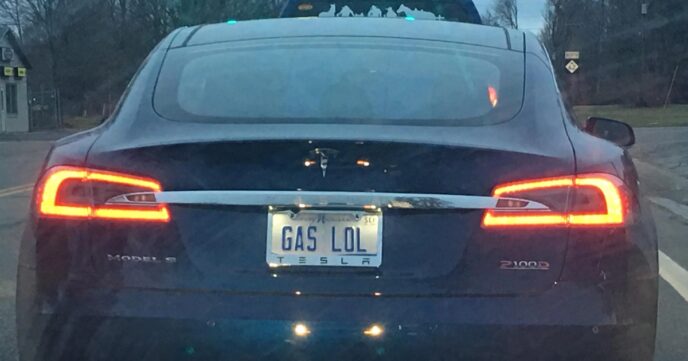
The end of the road for the internal combustion engine (ICE) in the European Union is now in sight. The EU agreed on Wednesday to officially ban the sale of new gas and diesel powered vehicles starting in 2035.
The ICE ban is part of the union’s broader “Fit for 55” plan, which aims to reduce the EU’s net greenhouse gas emission by 55 percent by 2030 and to reach carbon neutrality by 2050.
According to a statement from the Council of the EU, the ban, which has two phases, calls for a CO2 reduction 55% for cars and 50% for vans by 2030. Phase two calls for 100% reduction for both cars and vans. How do you achieve a 100% reduction in CO2? You ban the sale of any new gas or diesel powered car, of course! Wednesday’s agreement is viewed as a vital step in the transition to electric vehicles across all 27 EU member states.
The European Parliament also wants to outlaw sales of used ICE vehicles, but that wasn’t decided during Wednesday’s meeting. The UK, which is no longer in the EU, announced last year that it would ban sales of new gasoline and diesel cars starting in 2030, and all new cars must be electric by 2035.
So, is ICE dead? Mostly yes, a tiny bit of no. The 2035 ban calls for a 100% reduction of emissions, without mentioning the combustion engine. This leaves the door open for ICEs run on alternative fuels. For example, Porsche is experimenting with synthetic fuels that gives off zero emissions, and Formula 1 cars will run entirely on sustainable fuel from 2026. Synthetic fuels is seen as a solution that will allow drivers to continue driving their old ICE cars without paying an onslaught of carbon taxes that is sure to follow after an ICE ban.
Most petrol heads will not welcome this news, and the some will continue stick their the false claims that EVs are worst for the environment than gas powered car (it’s not). The EU now joins China, Canada, the UK, Japan, and the US in banning the sale of ICE by 2035. Other countries plan to ban ICE even sooner. Norway, South Korea and Signapore will be ban the sale ICE by 2025, which is only three years away. Other countries don’t plan to ban ICE until 2040. However, with China, US, and EU being the biggest car markets, January 1, 2035 is the date that new fossil fuel cars will officially die.
